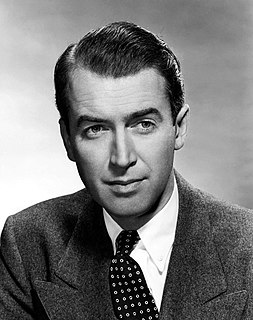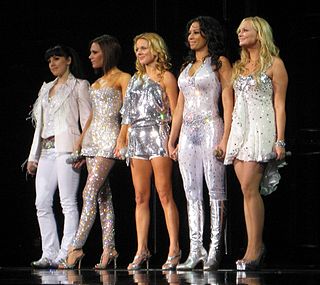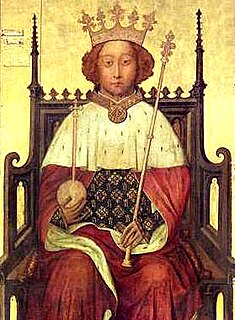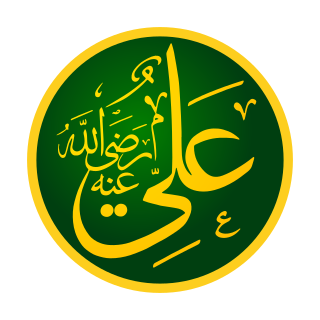
Batman & Robin is a 1997 American superhero film based on the DC Comics characters Batman and Robin by Bill Finger and Bob Kane. It is the fourth and final installment of Warner Bros.'s initial Batman film series, a sequel to Batman Forever and the only film in the series made without the involvement of Tim Burton in any capacity.

David Robert Jones, known professionally as David Bowie, was an English singer-songwriter and actor. A leading figure in the music industry, he is regarded as one of the most influential musicians of the 20th century. Bowie was acclaimed by critics and musicians, particularly for his innovative work during the 1970s. His career was marked by reinvention and visual presentation, and his music and stagecraft had a significant impact on popular music.

Humphrey DeForest Bogart, nicknamed Bogie, was an American film and stage actor. His performances in Classical Hollywood cinema films made him an American cultural icon. In 1999, the American Film Institute selected Bogart as the greatest male star of classic American cinema.

Henry VIII was King of England from 22 April 1509 until his death in 1547. Henry is best known for his six marriages, and for his efforts to have his first marriage annulled. His disagreement with Pope Clement VII about such an annulment led Henry to initiate the English Reformation, separating the Church of England from papal authority. He appointed himself Supreme Head of the Church of England and dissolved convents and monasteries, for which he was excommunicated. Henry is also known as "the father of the Royal Navy," as he invested heavily in the navy, increasing its size from a few to more than 50 ships, and established the Navy Board.

James Maitland Stewart was an American actor and military pilot. Known for his distinctive drawl and everyman screen persona, Stewart's film career spanned 80 films from 1935 to 1991. With the strong morality he portrayed both on and off the screen, he epitomized the "American ideal" in the mid-twentieth century. In 1999, the American Film Institute (AFI) ranked him third on its list of the greatest American male actors.

Avram Noam Chomsky is an American linguist, philosopher, cognitive scientist, historical essayist, social critic, and political activist. Sometimes called "the father of modern linguistics", Chomsky is also a major figure in analytic philosophy and one of the founders of the field of cognitive science. He is a Laureate Professor of Linguistics at the University of Arizona and an Institute Professor Emeritus at the Massachusetts Institute of Technology (MIT), and is the author of more than 150 books on topics such as linguistics, war, politics, and mass media. Ideologically, he aligns with anarcho-syndicalism and libertarian socialism.

Diana, Princess of Wales, was a member of the British royal family. She was the first wife of Charles, Prince of Wales—the heir apparent to the British throne—and mother of Princes William and Harry. Diana's activism and glamour made her an international icon and earned her enduring popularity as well as unprecedented public scrutiny, exacerbated by her tumultuous private life.

Stanley Kubrick was an American film director, producer, screenwriter, and photographer. He is frequently cited as one of the greatest filmmakers in cinematic history. His films, almost all of which are adaptations of novels or short stories, cover a wide range of genres and are noted for their realism, dark humor, unique cinematography, extensive set designs, and evocative use of music.

Steven Allan Spielberg is an American film director, producer, and screenwriter. He began his career in the New Hollywood era and is currently the most commercially successful director of all time. Spielberg is the recipient of various accolades, including three Academy Awards, a Kennedy Center honor, a Cecil B. DeMille Award, and an AFI Life Achievement Award.

Shinto is a religion that originated in Japan. Classified as an East Asian religion by scholars of religion, its practitioners often regard it as Japan's indigenous religion and as a nature religion. Scholars sometimes call its practitioners Shintoists, although adherents rarely use that term themselves. Shinto has no central authority in control, and much diversity exists among practitioners.

The Spice Girls are a British girl group formed in 1994, consisting of Melanie Brown, also known as Mel B ; Melanie Chisholm, or Melanie C ; Emma Bunton ; Geri Halliwell ; and Victoria Beckham. With their "girl power" mantra, they redefined the girl-group concept by targeting a young female fanbase. They led the teen pop resurgence of the 1990s, were a major part of the Cool Britannia era, and became pop culture icons of the decade.

Salvador Domingo Felipe Jacinto Dalí i Domènech, Marquess of Dalí of Púbol was a Spanish surrealist artist renowned for his technical skill, precise draftsmanship, and the striking and bizarre images in his work.

Rastafari, sometimes called Rastafarianism, is a religion that developed in Jamaica during the 1930s. It is classified as both a new religious movement and a social movement by scholars of religion. There is no central authority in control of the movement and much diversity exists among practitioners, who are known as Rastafari, Rastafarians, or Rastas.

Edward I, also known as Edward Longshanks and the Hammer of the Scots, was King of England from 1272 to 1307. Before his accession to the throne, he was commonly referred to as The Lord Edward. The first son of Henry III, Edward was involved from an early age in the political intrigues of his father's reign, which included an outright rebellion by the English barons. In 1259, he briefly sided with a baronial reform movement, supporting the Provisions of Oxford. After reconciliation with his father, however, he remained loyal throughout the subsequent armed conflict, known as the Second Barons' War. After the Battle of Lewes, Edward was hostage to the rebellious barons, but escaped after a few months and defeated the baronial leader Simon de Montfort at the Battle of Evesham in 1265. Within two years the rebellion was extinguished and, with England pacified, Edward joined the Ninth Crusade to the Holy Land. He was on his way home in 1272 when he was informed that his father had died. Making a slow return, he reached England in 1274 and was crowned at Westminster Abbey.

Richard II, also known as Richard of Bordeaux, was King of England from 1377 until he was deposed in 1399. He was the son of Edward, Prince of Wales, and Joan, Countess of Kent. Richard's father died in 1376, leaving Richard as heir apparent to his grandfather, King Edward III. Upon the death of Edward III, the 10-year-old Richard succeeded to the throne.

Schindler's List is a 1993 American historical drama film directed and produced by Steven Spielberg and written by Steven Zaillian. It is based on the 1982 non-fiction novel Schindler's Ark by Australian novelist Thomas Keneally. The film follows Oskar Schindler, a German industrialist who saved more than a thousand mostly Polish-Jewish refugees from the Holocaust by employing them in his factories during World War II. It stars Liam Neeson as Schindler, Ralph Fiennes as SS officer Amon Göth, and Ben Kingsley as Schindler's Jewish accountant Itzhak Stern.

Prince Albert of Saxe-Coburg and Gotha was the consort of Queen Victoria from their marriage on 10 February 1840 until his death in 1861.

ʿAlī ibn Abī Ṭālib was a cousin, son-in-law and companion of the Islamic prophet Muhammad. He ruled as the fourth rightly guided caliph from 656 until his assassination in 661. He is one of the central figures in Shia Islam as the first Shia Imam and in Sunni Islam as the fourth of the "rightly guided" (rāshidūn) caliphs. He was the son of Abu Talib and Fatimah bint Asad, the husband of Fatima, and the father of Hasan, Husayn, Zaynab, and Umm Kulthum.

The Godfather is a 1972 American crime film directed by Francis Ford Coppola, who co-wrote the screenplay with Mario Puzo, based on Puzo's best-selling 1969 novel of the same name. The film stars Marlon Brando, Al Pacino, James Caan, Richard Castellano, Robert Duvall, Sterling Hayden, John Marley, Richard Conte, and Diane Keaton. It is the first installment in The Godfather trilogy. The story, spanning from 1945 to 1955, chronicles the Corleone family under patriarch Vito Corleone (Brando), focusing on the transformation of his youngest son, Michael Corleone (Pacino), from reluctant family outsider to ruthless mafia boss.

Ernesto "Che" Guevara was an Argentine Marxist revolutionary, physician, author, guerrilla leader, diplomat, and military theorist. A major figure of the Cuban Revolution, his stylized visage has become a ubiquitous countercultural symbol of rebellion and global insignia in popular culture.




















